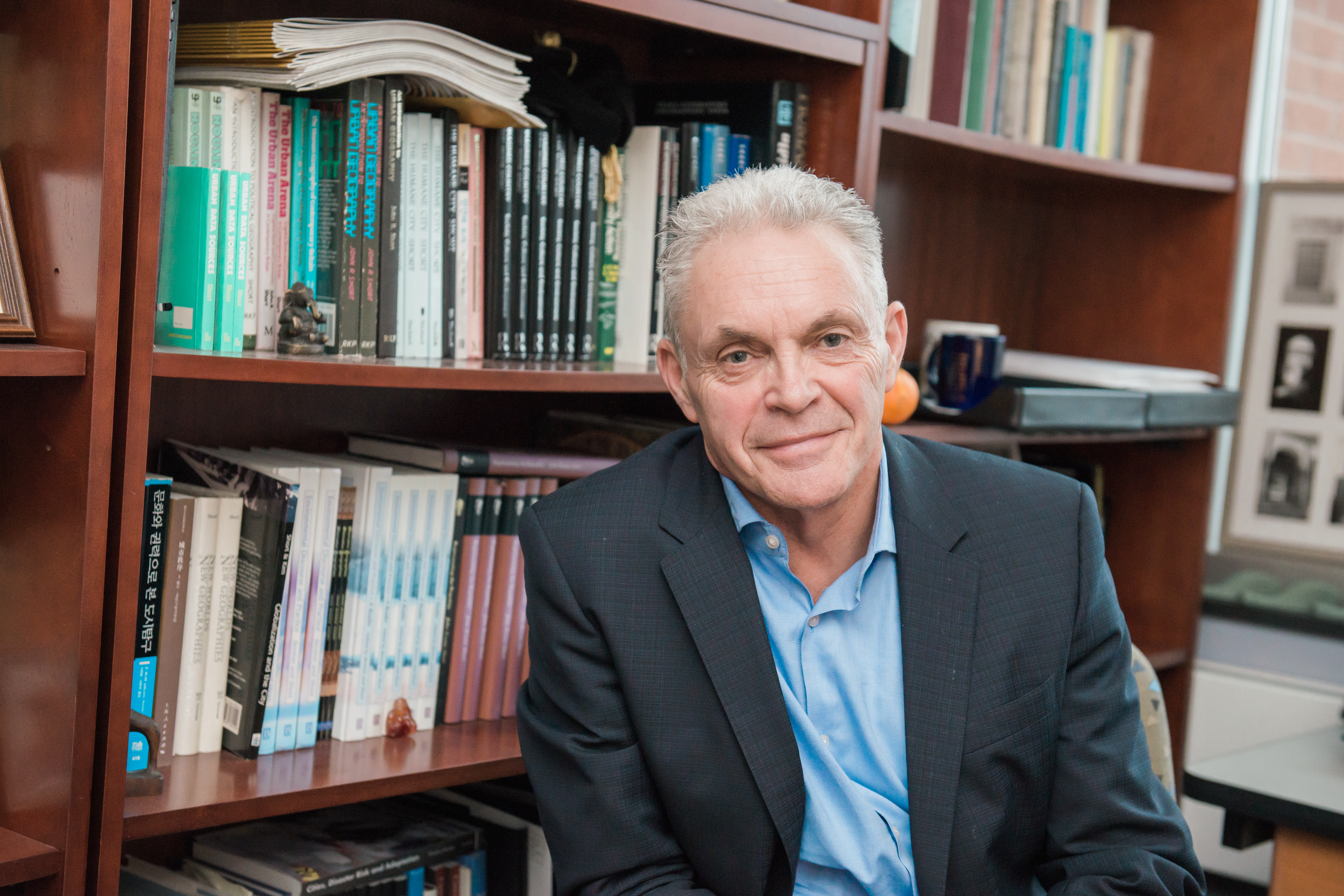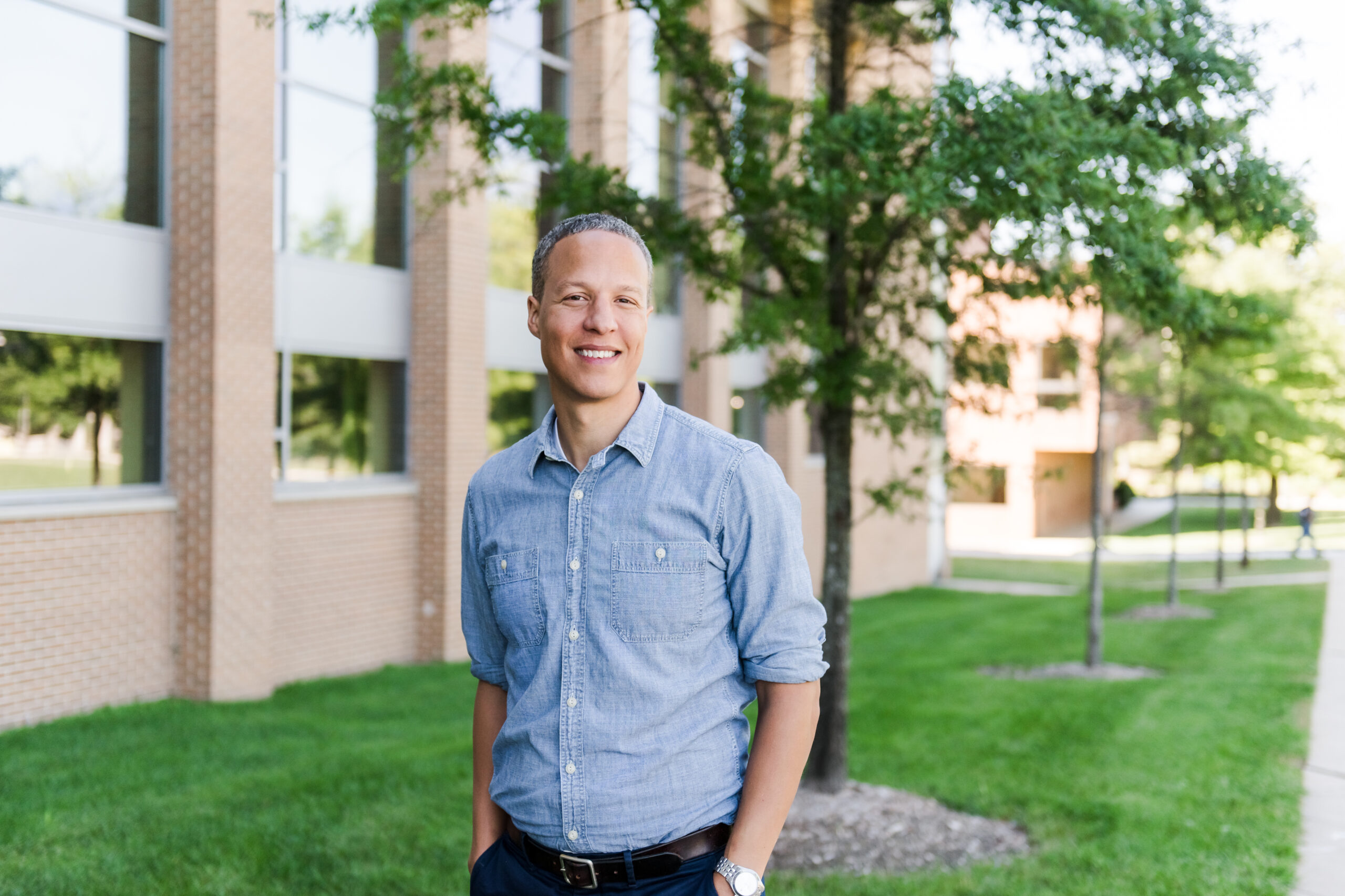As fall semester has kicked into high gear, UMBC professors have connected not just with students in the classroom, but also with the broader public through research-based reflections on current events in popular media. Recently, humanities and social sciences faculty Derek Musgrove ’97, Christy Ford Chapin, and John Rennie Short have weighed in on topics from Washington D.C.’s long struggle over self-government, to the feasibility of Bernie Sanders’ “Medicare for all” proposal, to decisions over where to host the Olympic Games.
Musgrove, associate professor of history, recently published an opinion piece in The Washington Post with Colby College’s Chris Myers Asch, his co-author of the forthcoming book Chocolate City: A History of Race and Democracy in the Nation’s Capital. Their article delves into the tug-of-war over power in Washington, D.C., as a municipality, and how that has changed over time. Specifically, the authors examine recent hostility of congressional Republicans towards the District of Columbia’s attempts at autonomous self-governance, in contrast to the GOP’s general preference to “champion taking power from the federal government and [give] it to states and localities.”
“[T]his hostility is actually a relatively new phenomenon,” Musgrove and Asch write. “Just one generation ago, Republicans were some of the most eloquent proponents of District self-determination.”
The authors recall how Richard Nixon signed a bill that gave the city a nonvoting member of Congress in 1971 and, two years later, a bill that provided the district with limited self-government. Rather than indicate the start of a trend, however, Musgrove and Asch write, “fearing the growth of black, liberal political power, and the legislative reforms that District representatives would undoubtedly support, grass-roots conservatives engineered an abrupt about face in the party’s position. They successfully campaigned to scuttle the city’s quest for a vote in Congress and have since demanded opposition to any expansion of local self- government.”

Christy Ford Chapin, associate professor of history and author of Ensuring America’s Health: The Public Creation of the Corporate Health Care System, similarly dove into the archives to provide context for Washington Post readers on a current policy debate. Following Bernie Sanders’s announcement of a “Medicare for all” plan, Chapin examined some of the core aspects of the approach and explained why she believes it fails to learn take advantage of lessons learned from previous health care policymaking efforts.
Medicare and ACA, Chapin explains, extended rather than replaced benefits for the elderly, those with preexisting conditions, and workers who could not afford health care. In contrast, she notes, “rather than mending the ACA or modifying the system in a way that is culturally familiar to voters, the senator’s proposal asks citizens to abandon their current coverage for a central planning experiment.” Such an experiment, controlled by government, she suggests, would be challenging for voters who may be feeling short on trust in elected officials.

Public policy professor John Rennie Short’s recent commentary in The Conversation, now read 25,000 times across sites like Business Insider and Salon, reflects on the Paris and Los Angeles bids for the summer Olympic Games, which he views generally as posing more challenges than benefits for host cities. What does he see as they major drawbacks? “The IOC retains control over the games, pockets the revenues from broadcasting rights and corporate sponsorship but is neither responsible for hosting and paying for the games nor at risk if any losses occur,” Short writes.Ultimately, Short argues, “Hosting the Olympics is a distraction from achieving a fairer, more just and efficient city.” He also delves further into who does benefit financially from hosting the Olympic games, reactions to bids in host cities, and possible solutions to the challenge hosting the games in an equitable, sustainable way, such as a single permanent host site or a small set of rotating host sites.
The future of D.C. governance, BernieCare, and the Olympic Games remain to be seen, but for greater context on the historical debates surrounding each, see the full articles: “Washingtonians want a voice in Congress. Republicans say no. But it wasn’t always that way” and “Medicare for all sounds great, but BernieCare is a political flop” in The Washington Post and “Paris and Los Angeles bids to host Olympics expose deeper crisis at Olympic Games,” on The Conversation.
Banner image: Derek Musgrove, history. Photo by Marlayna Demond ’11 for UMBC.
Tags: CAHSS, diversityandinclusion, History, PublicPolicy, ROI

